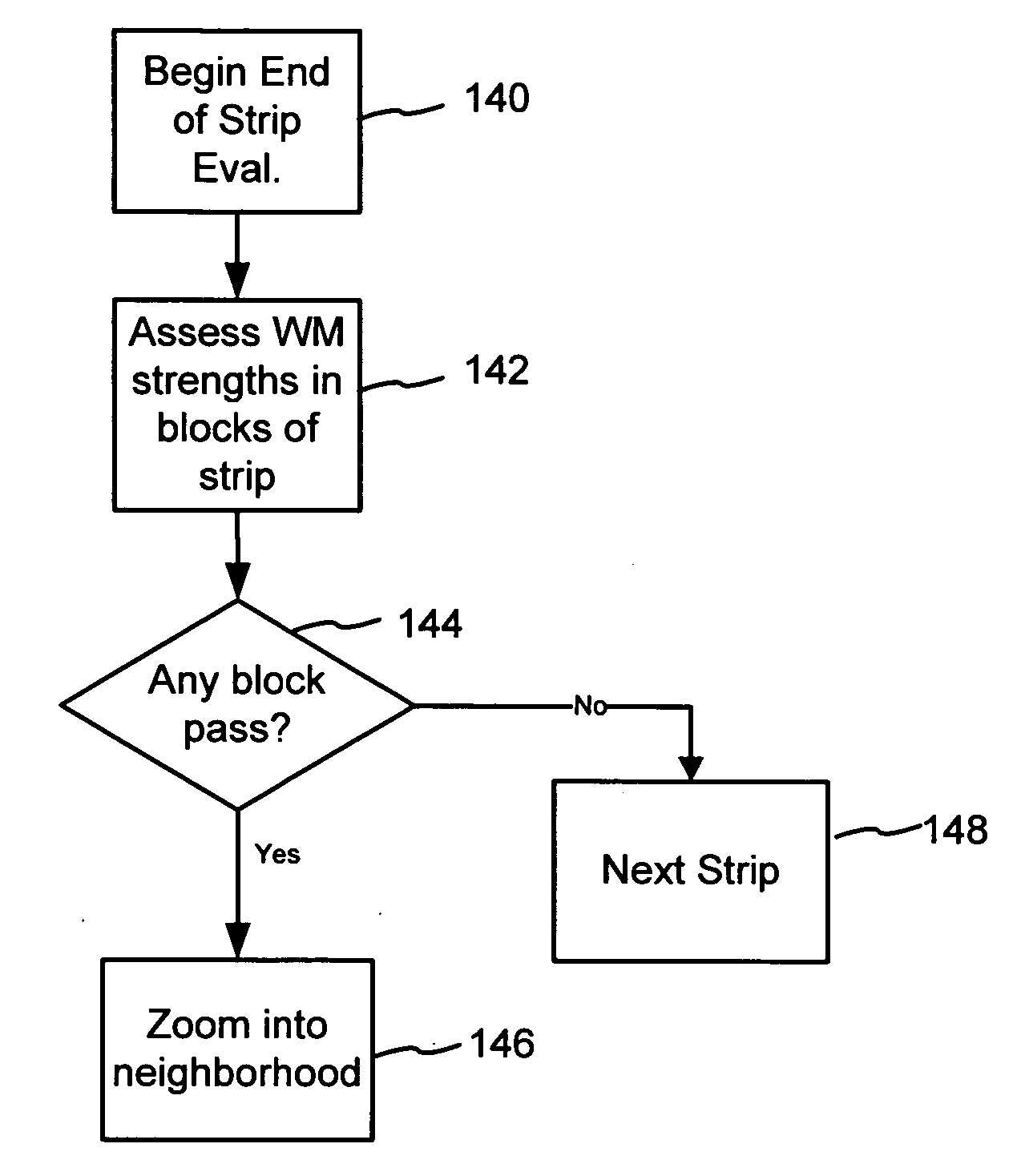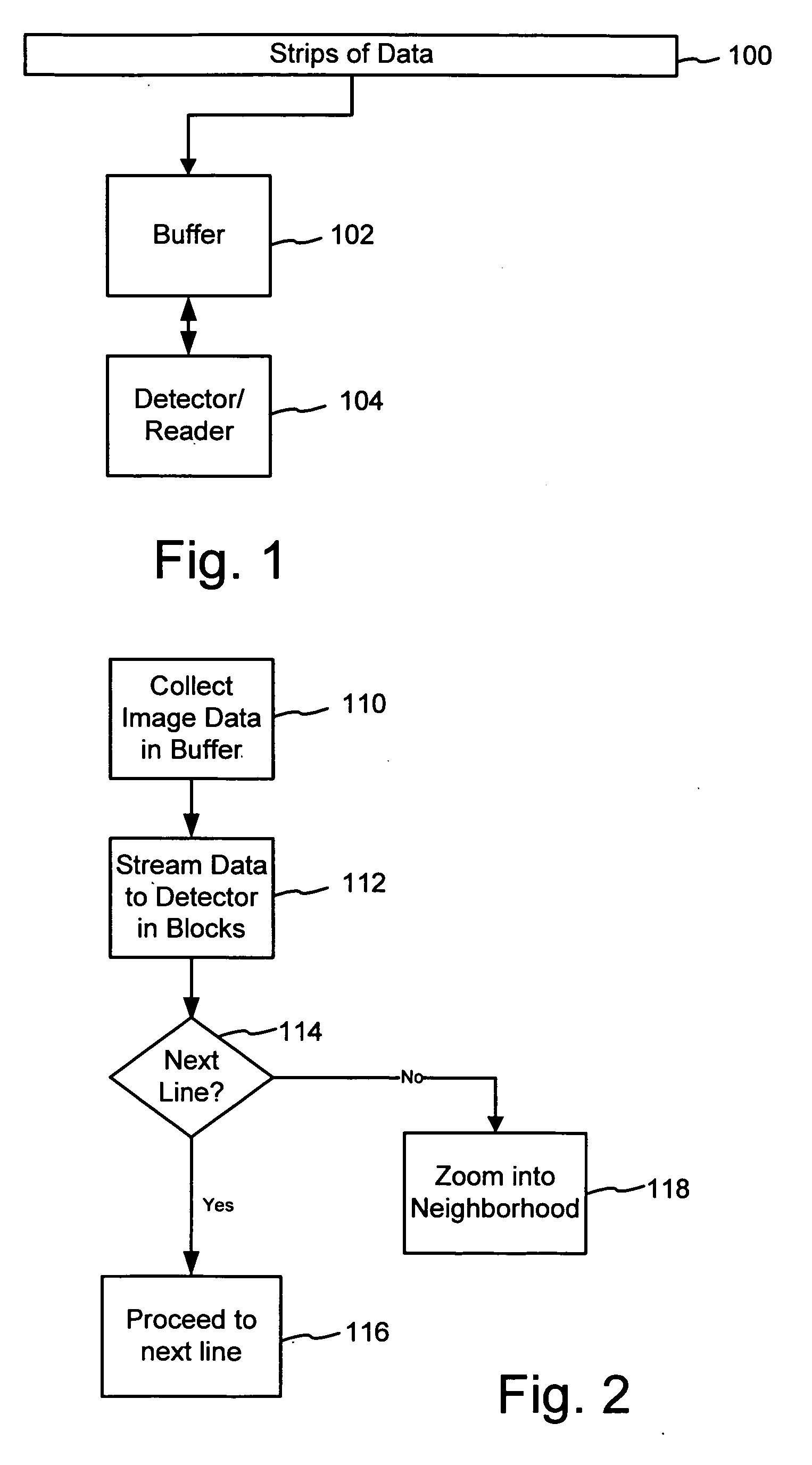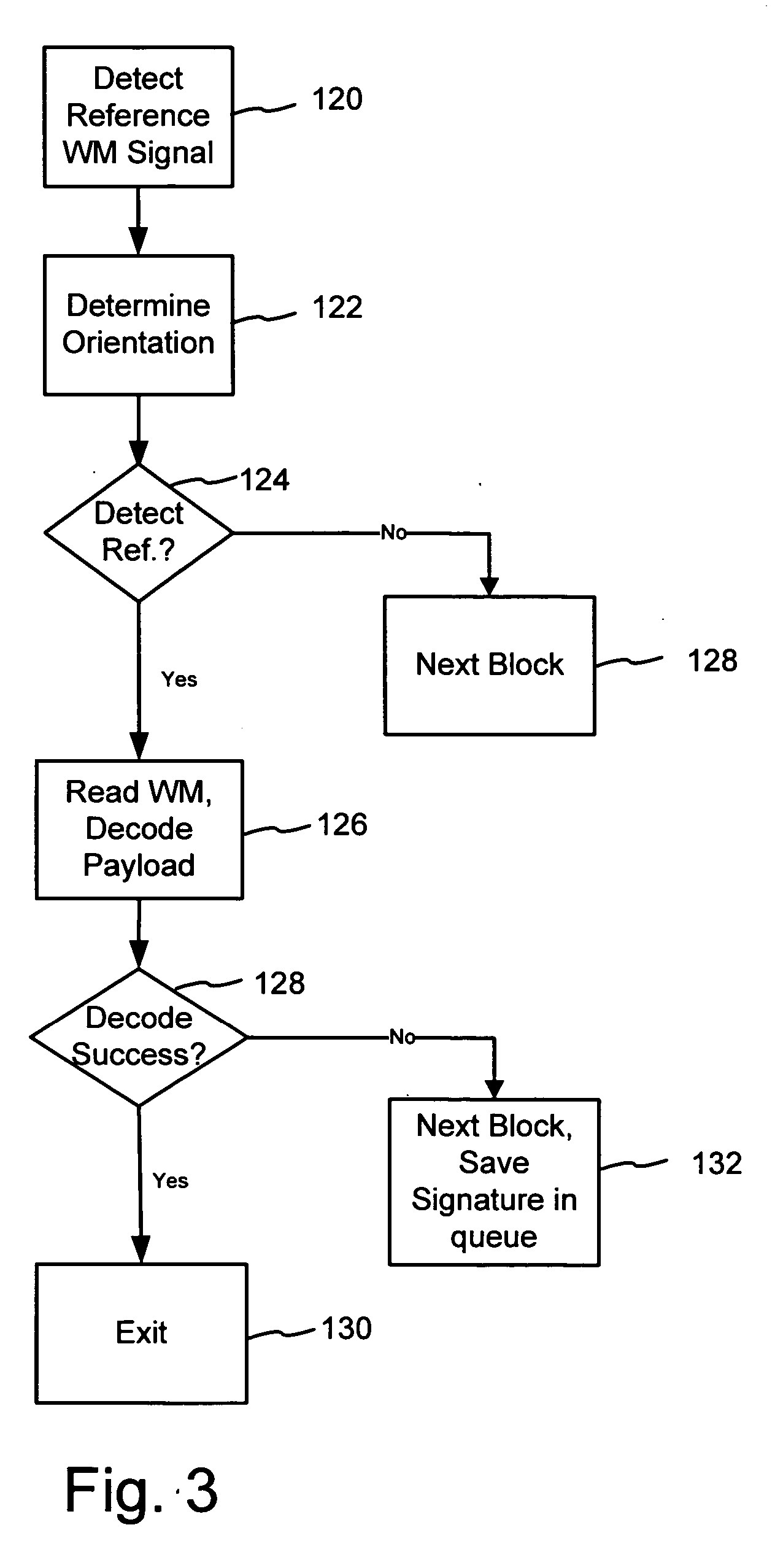Hierarchical watermark detector
- Summary
- Abstract
- Description
- Claims
- Application Information
AI Technical Summary
Benefits of technology
Problems solved by technology
Method used
Image
Examples
Embodiment Construction
[0023] In this document, we describe a digital watermark method for real-time software or low-cost hardware implementation. The developed detector is suitable for devices such as stand-alone watermark readers, cellular phones, music or video players, PDAs, image processing equipment (like cameras, scanners, fax machines, copiers, printers and multifunction devices), etc. These devices have primitive operating systems with limited processing power, memory, and system bandwidth. Our embedder tiles the watermark over the host image to let the watermark be detected from any region in the digital or printed watermarked image as the data is streamed through the device. It also adapts the watermark strength locally to maximize detection and minimize watermark visibility. Consequently, the watermark may be detectable only in few regions of the image that are not necessarily aligned with the original tile boundaries. To avoid a brute-force search, our detector uses a hierarchical search algo...
PUM
 Login to View More
Login to View More Abstract
Description
Claims
Application Information
 Login to View More
Login to View More - R&D
- Intellectual Property
- Life Sciences
- Materials
- Tech Scout
- Unparalleled Data Quality
- Higher Quality Content
- 60% Fewer Hallucinations
Browse by: Latest US Patents, China's latest patents, Technical Efficacy Thesaurus, Application Domain, Technology Topic, Popular Technical Reports.
© 2025 PatSnap. All rights reserved.Legal|Privacy policy|Modern Slavery Act Transparency Statement|Sitemap|About US| Contact US: help@patsnap.com



